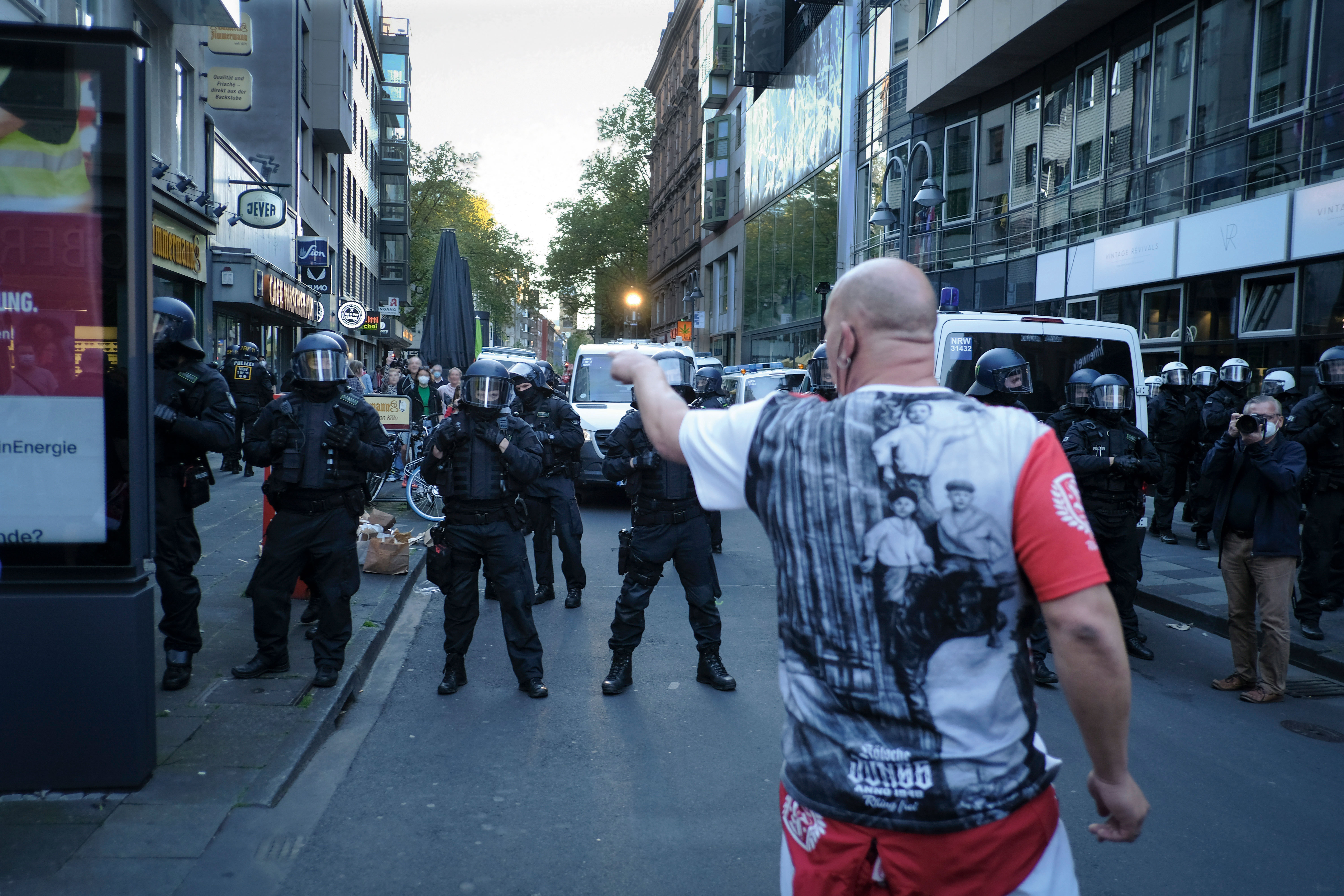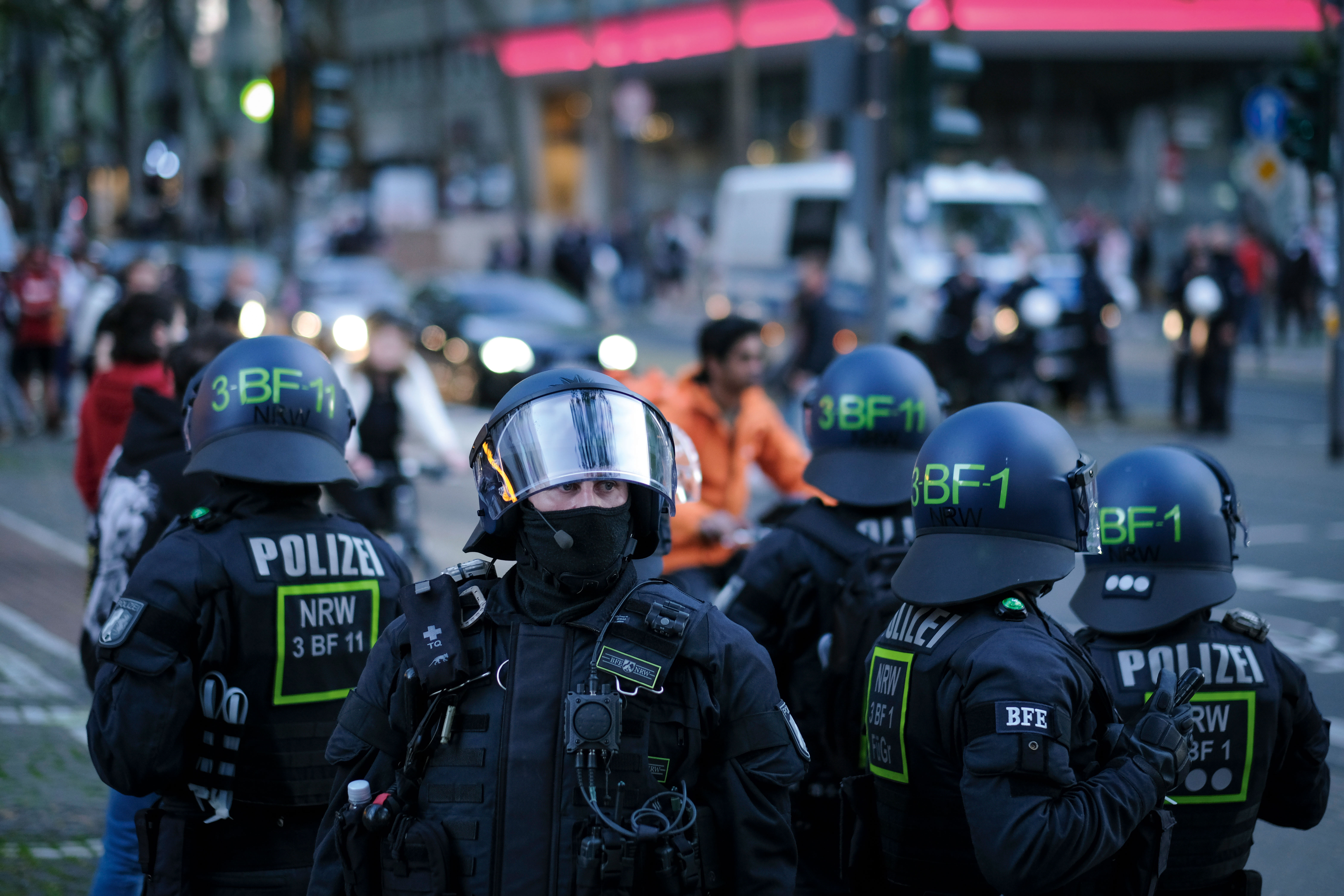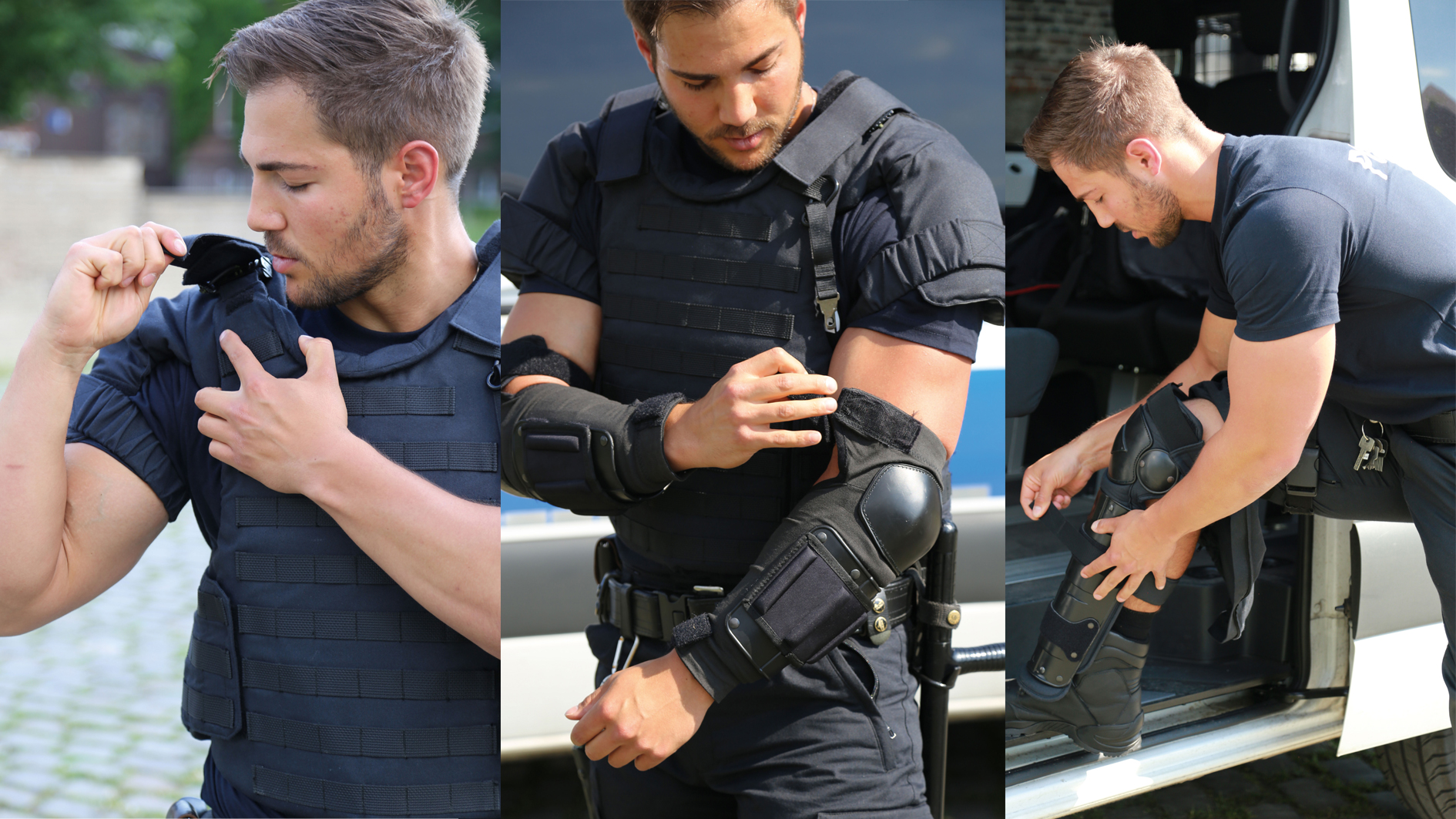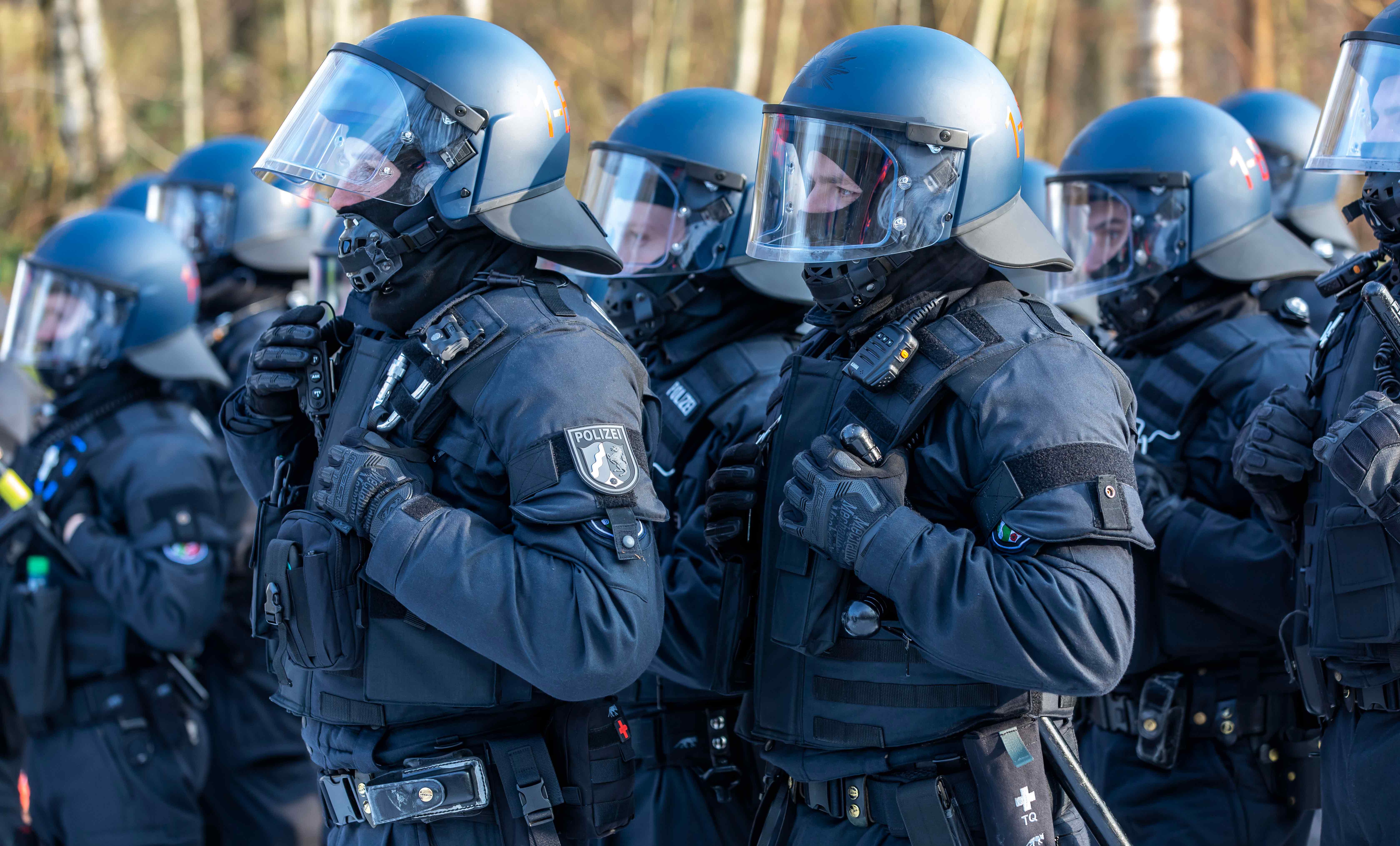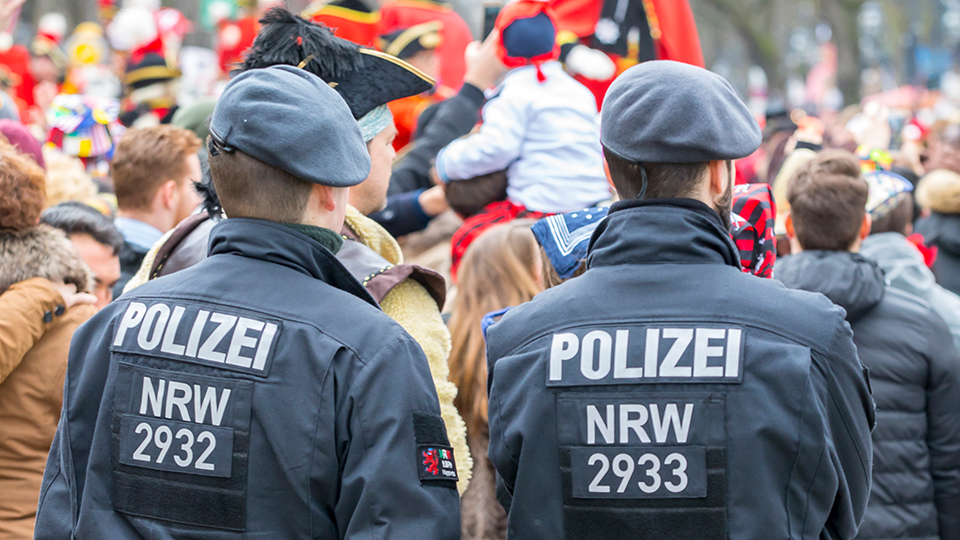The riot police
The riot police consist of three divisional commands, three technical task forces and 18 riot police squads and are spread across 14 police headquarters. Riot police forces are requested when the force requirements exceed the capabilities of the district police authority in charge of operations for special reasons or when the specialized experience and special equipment of the riot police are required.
Operations for special reasons include major operations within and outside North Rhine-Westphalia that require large numbers of personnel, such as:
- Large-scale demonstrations throughout Germany,
- EU/world economic summits, state visits and
- Football matches with particular risk potential
The riot police squads also support the NRW district police authorities in combating crime and traffic accidents. As all officers in the riot police squads have already been deployed on guard duty, these forces can take over the work in "their sponsoring authorities" on their own responsibility.
The technical deployment units of the riot police
The three technical task forces (TEE) of the riot police are based at the police headquarters in Bochum, Cologne and Wuppertal. They are each divided into an information and communication group, a technical group and a water cannon/special vehicle group.
They support the police authorities in dealing with special operational situations, in particular by deploying specialized forces and equipment.
Examples of deployment:
- Missing persons/evidence search in waters by diving teams
- Establishing technical barriers
- Barricade/barrier clearance in the event of violent actions
- Deployment of water cannons
